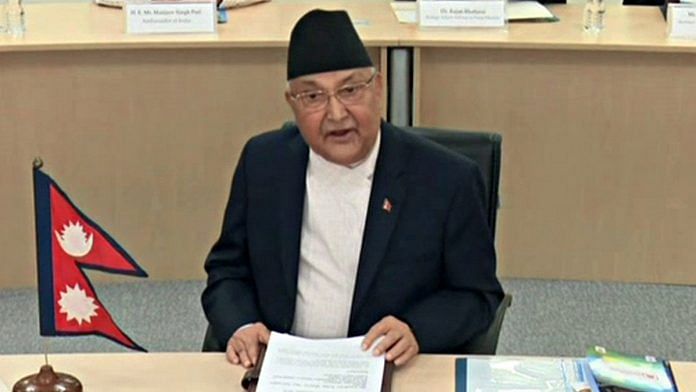Kathmandu: Research and Analysis Wing (RAW) chief Samant Kumar Goel paid a courtesy call on Prime Minister K P Sharma Oli and said India will not allow interruption in the friendly bilateral relations with Nepal and resolve all outstanding issues through dialogue, according to a top Nepalese official on Thursday.
His visit comes ahead of the upcoming official trip of Indian Army chief Gen. M M Naravane to Nepal in the first week of November.
Goel called on Prime Minister Oli at his official residence at Baluwatar on Wednesday evening, the premier’s press advisor Surya Thapa told PTI.
During the meeting, Goel “expressed his views regarding not to allow interruption in friendly relations between Nepal and India, resolving all the outstanding issues through dialogue and continuing mutual cooperation,” Thapa said.
Sources here said the chief of India’s external intelligence agency is also expected to meet chiefs of different security agencies in Nepal, including the Nepalese Army, during his visit.
The ties between the two countries came under strain after Defence Minister Rajnath Singh inaugurated an 80-km-long strategically crucial road connecting the Lipulekh pass with Dharchula in Uttarakhand on May 8.
Nepal protested the inauguration of the road claiming that it passed through its territory. Days later, Nepal came out with the new map showing Lipulekh, Kalapani and Limpiyadhura as its territories.
In the midst of the row, Gen Naravane said that there were reasons to believe that Nepal objected to the road at the behest of “someone else”, in an apparent reference to a possible role by China in the matter. The comments triggered angry reactions from Nepal.
India too had published a new map in November 2019 showing the areas as its territories.
After Nepal released the map, India reacted sharply, calling it a “unilateral act” and cautioning Kathmandu that such “artificial enlargement” of territorial claims will not be acceptable to it.
In June, Nepal’s Parliament approved the new political map of the country featuring areas which India maintains belong to it.
In its reaction, after Nepal’s lower house of parliament approved the bill, India termed as untenable the “artificial enlargement” of territorial claims by the neighbouring country.
India said Nepal’s action violates an understanding reached between the two countries to resolve the boundary issues through talks.
Prime Minister Oli has been asserting that Lipulekh, Kalapani and Limpiyadhura belong to his country and vowed to “reclaim” them from India.
The Lipulekh pass is a far western point near Kalapani, a disputed border area between Nepal and India. Both India and Nepal claim Kalapani as an integral part of their territory – India as part of Uttarakhand’s Pithoragarh district and Nepal as part of Dharchula district.
Also read: R&AW chief on hurricane tour to Nepal, to meet PM Oli as trouble brews in ruling party




TS Darbari – Nepal and India enjoy excellent bilateral ties. Founded on the age-old connection of history, culture, tradition and religion, these relations are close, comprehensive and multidimensional and are pronounced more in political, social, cultural, religious and economic engagements with each other. However, within last few months the relations have detriorated because of influence of China on Nepal. Nepal needs to take an historical approach understanding the ways and deceptive nature of China. China beleives solely in expansionism and can go to any extent to become superpower. From the Chinese point of view, becoming a superpower does not mean becoming economic power but to rule the lands and territories and making other nations follow China or become part of China which in itself a pernicious thought that will lead the world towards annihilation. Therefore, India and Nepal need to stay united to stand against China. #TS_Darbari #Ts_Darbari_Blog #TS_Darbari_News #Ts_Darbari_Views #Ts_Darbari_Blogger #TS_Darbari_Comments #Ts_Darbari_Opinion #About_TS_Darbari #TS_Darbari_Articles #Politics #Views #Comments
Mr. TS Darbari is a top management professional, with several years of rich & diversified experience in Corporate Strategy, New Business Development, Sales & Marketing, Commercial Operations, Project Management, Financial Management and Strategic Alliances’.
Hope this trip will defused the tension between the centuries old neighbouring nations.
India must mind it’s own business . Interference will lead to disastrous results as in srilanka